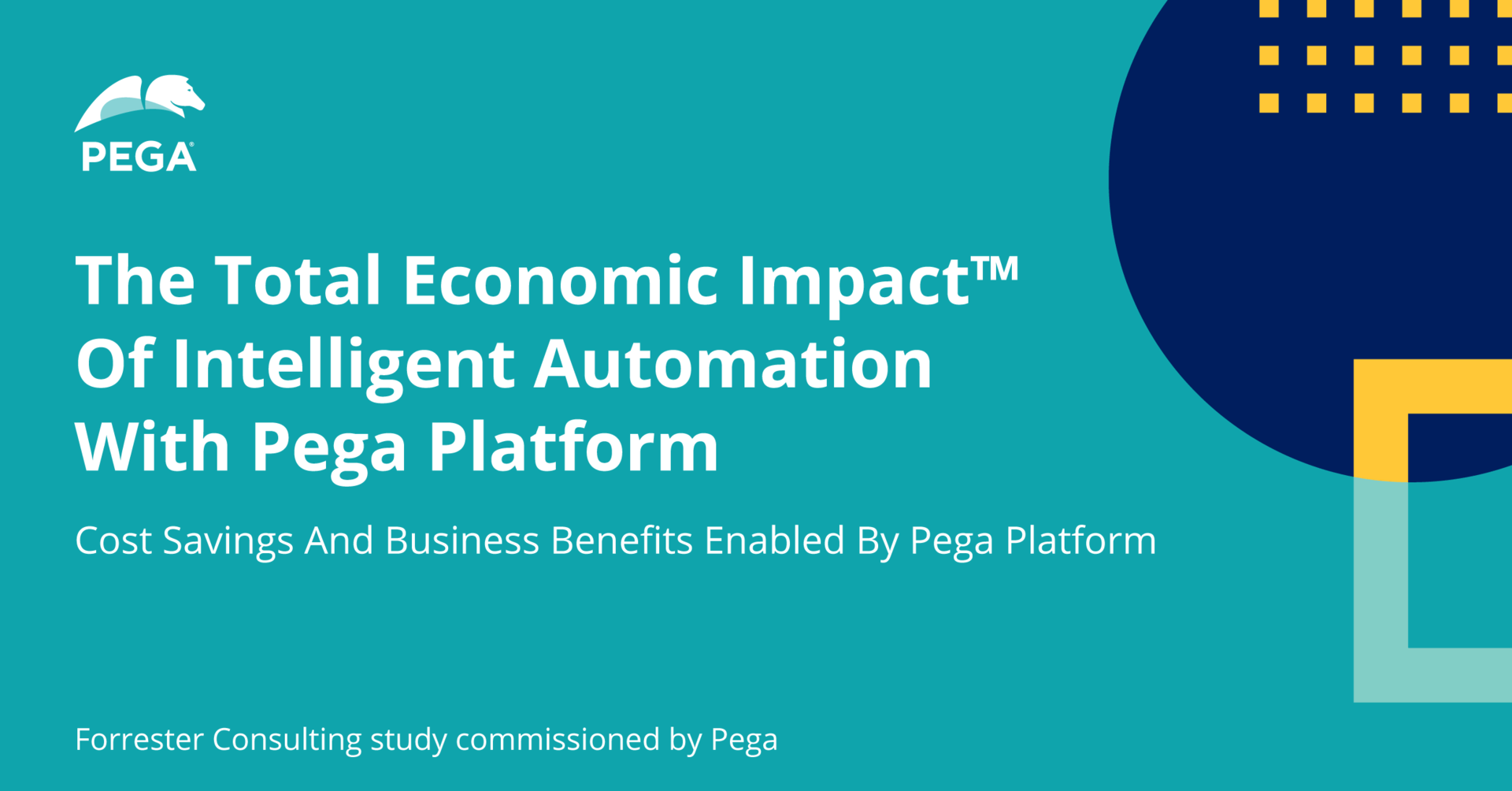Low-code application development provides a host of benefits to businesses, like rapid deployment, lower demand on IT resources, and better management of workflows. But does it provide security? When businesses expand their system architecture and deliver faster workflow solutions, it is paramount that their data, systems, and users stay safe from security threats.
According to Forrester’s Total Economic Impact (TEI) Study, Pega’s powerful low-code platform can provide businesses with the solid foundation they need to build a resilient and secure business. Using responses from five different organizations and 125 decision-makers, Forrester created a composite organization to illustrate the benefits of the Pega platform and what businesses can come to expect when building on a low-code foundation.
Implementing data security in all the right places
Today, enterprise organizations prioritize security. But as businesses grow and expand, maintaining security across departments and organizations gets increasingly difficult. IT teams can easily get overworked, leading to missed threats and potential issues with shadow IT. On top of that, teams may be relying on outdated tools, like spreadsheets stored in local folders, that are rife with security weaknesses.
Forrester identified these gaps in security as a main challenge impacting enterprise businesses. One decision maker in the financial sector shared with Forrester:
“Security is a high priority for us, and the tools we were using had none. We and our organization were at risk when anyone opened a file with privacy data, but [we] had no way of fixing this.”
In contrast, businesses that partner with Pega were able to see dramatic improvements in security across the organization. By moving data and processes from unsecured tools into Pega, IT teams are better able to protect company data, can establish roll-based access for users, and set company-wide governance across the system. Automation also provides IT teams with visibility into the effectiveness of their applications, so they can iterate, adapt, and rapidly improve workflows.
Plus, IT teams can track any changes to systems with audit trails, allowing for better transparency around application development both inside and beyond IT roles. Once citizen developers start harnessing low code to create workflow efficiencies, they can build off the existing, secured structure and duplicate work without creating gaps in security.
Cutting costs without cutting IT professionals
Keeping systems all under one digital roof is certainly important for maintaining security at an organization. However, another step that may seem less obvious is protecting the time and bandwidth of IT personnel.
In the composite organization, Forrester determined about 50 employees would be dedicated to information security and governance. Over a three-year period, the composite organization was able to increase the time saved by IT teams by an average of four hours per week per employee due to improved transparency, more efficient back-end processes, and better tracking abilities for teams.
Citizen developer teams could take on some of the less-intensive IT work, which had the added benefit of improving relationships across IT and other business teams. With these benefits in mind, IT teams would then be able to reallocate that time to more strategic initiatives for their organization. Overall, the composite organization was able to maintain the same level of IT staff, while also cutting back on time, cost, and energy invested in security and governance. In fact, the cost savings from switching to Pega were significant, resulting in a 421% ROI on average across the composite organization.
Forrester estimated IT efficiencies would save organizations $15.5M over three years, including by retiring legacy systems and “avoiding licenses fees and the time/effort previously spent maintaining that tech.” Additionally, compliance, regulatory, and audit savings would equal another $1.4 million in fine avoidance and productivity, with 87% of survey respondents indicating Pega “made it easier to ensure and demonstrate compliance with reporting requirements [and] deadlines.”
Adapting fast, forward, and forever to threats
Unless you have a crystal ball, it’s impossible to predict when the next data breach could impact your business. Even then, new threats are being developed daily, which means businesses must stay adaptable and consider how they can build secure solutions from the start. Luckily, low-code platforms like Pega provide secure, organization-wide architecture for businesses.
As new threats arise, IT professionals can benefit from an easy, intuitive system that allows them to roll out security fixes fast and across the entire organization. And with increased visibility from audit logs, roll-based access, and built-in workflow technology, IT teams can feel confident their solutions are protective and adaptable as the business and market continue to change.
Plus, the Pega platform is poised to change alongside business needs, as one lead system architect shared:
“Pega somehow understands the pain points every single organization faces every single day, and they start implementing those pain points into the system. They understand the pulse of the market and try to create that particular value in the Pega software, so that they can actually affect the organizations they are implemented in. It’s really nice that the platform is evolving every day and will continue to evolve to meet people’s needs.”
As Forrester highlighted in their report, security isn’t just a benefit of low-code application development, it’s an essential feature for businesses that want to succeed in our increasingly digital world. But beyond security, the benefits of Pega’s powerful low-code platform extend across organizations into how they handle customers, deliver value, and modernize business systems.


